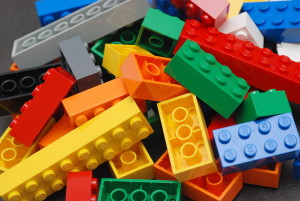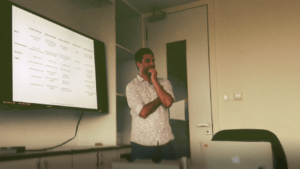Previously on ‘Failing Since 2012’ S01 E01, E02, E03 & E04, Dinker Charak, Founder of Roo Kids app, talked about how his startup ended up creating & supporting 23 products, purged some products to bring the count to 7 and realized even 7 was a lot. Now read on …
Failing. Not failed!
The Second Purge (Early 2015)
7 products. Each is a whole start-up in itself. Small team. Limited resources.
This meant only one thing: Go all in on one of these, drop rest and not get distracted by any more spin-off & focus.
Finding Our Sunday Passion
So which product should we choose from 7? One we would love to work on even on a Sunday and whose growth will give us a reason to celebrate on weekends?
We went back to our earlier method that I had described in Episode 3.
The Analysis
We dropped the criteria for which all 7 were doing well. We chose the following 7 factors to score each product. One with the maximum score would win!
1. Virality: We defined virality as growth driven by a user who had to bring other users to the product/platform for it to be of use. Eg: If I download Skype to chat with friends, I have to ensure that those friends also download Skype, register and add me as a friend so we can chat. And those new users would bring in others.
2. SEO: Can the product benefit from SEO and how easy will it be to search-engine-optimize it?
3. Clear Pain Point: Does this product solve a very obvious pain point? A yes is preferable.
4. Monetizability: How easy is it to monetize this product using existing models like ads, subscriptions, etc?
5. Uniqueness: Do we stand out among other offerings in Kid’s app market? While first mover advantage was not something we sought, some degree of uniqueness was preferred.
6. Global Market: We wanted to reach out to global markets. As we are based in India, it is a market of interest for us. Indians prefer to be on Global platforms. A quick look at top apps in any B2C (not e-commerce) category quickly confirms this. So if we did well globally, we would automatically do well in India.
7. No User-Customer Conflict: I have talked about User-Customer conflict inEpisode 1. This conflict is very evident in Kids’ products. The users are the kids and the customers are the parents. It is a tight rope to walk while balancing interests and ROI for both.
Below is the result of the analysis:
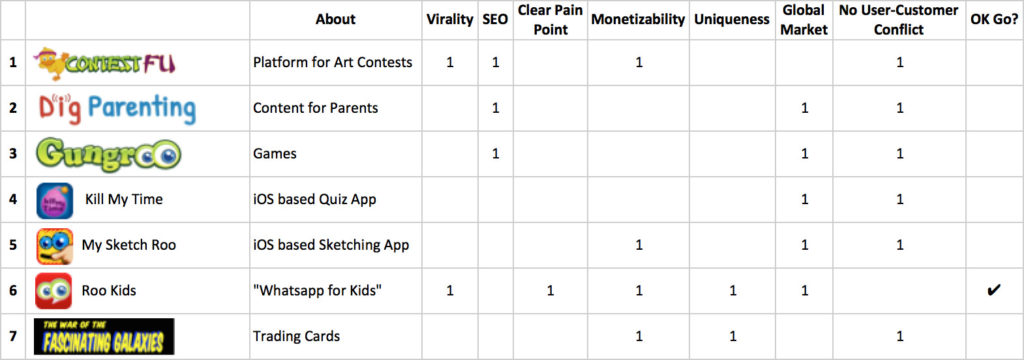
So, Roo Kids it was!
Roo Kids
The first thing we had to decide was which device to target first. We had learnt the lesson to not go all out till we get sufficient feedback from the market.
Our studies showed that while Phones were personal devices, the iPad gets passed around in the home most. It was replacing the Home PC as the default family device. So we targeted it first.

Once the iPad version was out, we were able to reuse the code to add the iPhone layout and release an iPhone/iPod version.
Android took time to start. We were seeing enough traction, usage and feedback from iOS versions. But as soon as things stabilized, we released an Android version.
We got a lot of requests to add Kindle Fire support. Many parents had bought it and the device had a strong reputation for being child-safe. With some changes (In-app purchase, notification, gathering device token, etc), we reused the Android code and released the Kindle version.
How’s Roo Kids Doing?
The app has been out for enough time for us to know if our analysis was right. Is it what the analysis promised it to be? Let’s see:
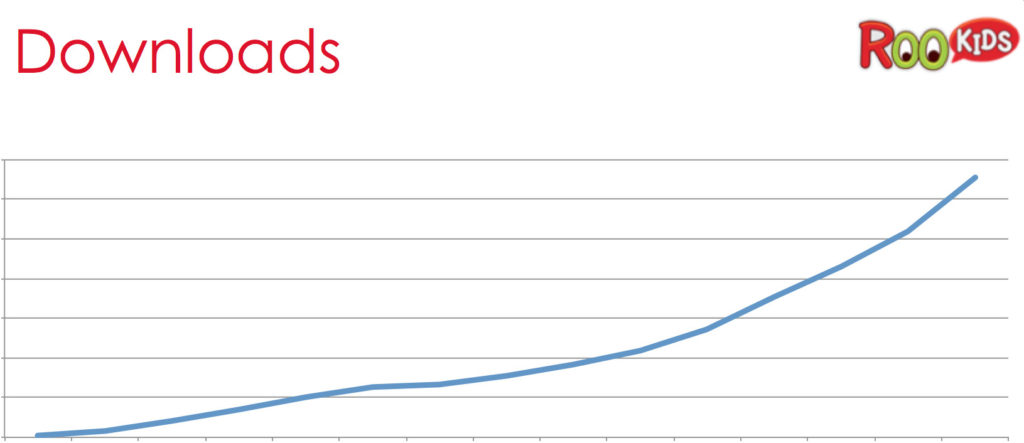
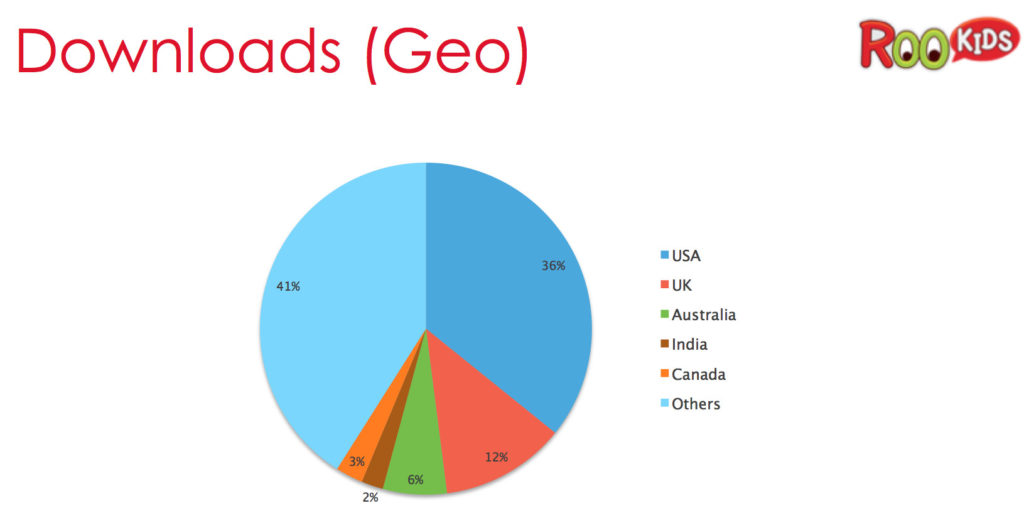
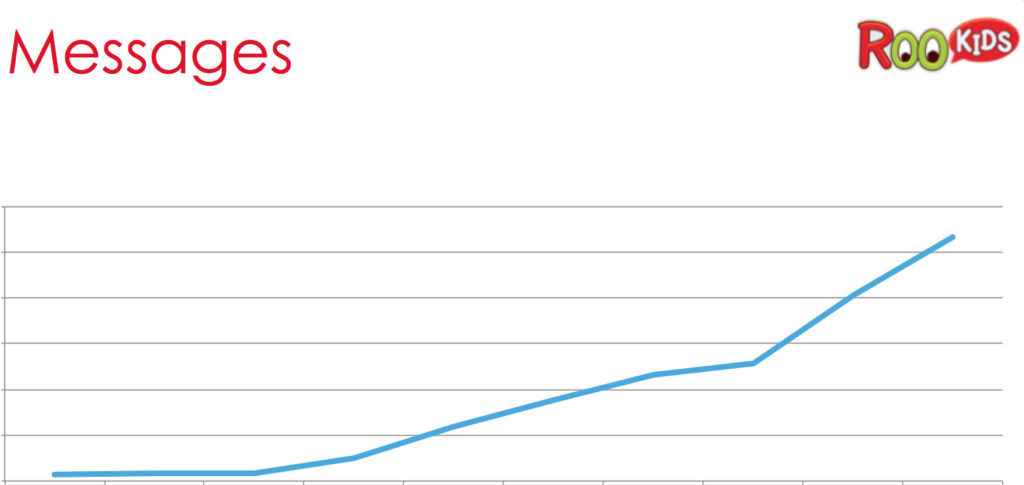
This includes messages sent to another user, messages sent to canned-response chatbots like Echo, Puzzle, Science for Ages 8/9, stickers, images and doodles.
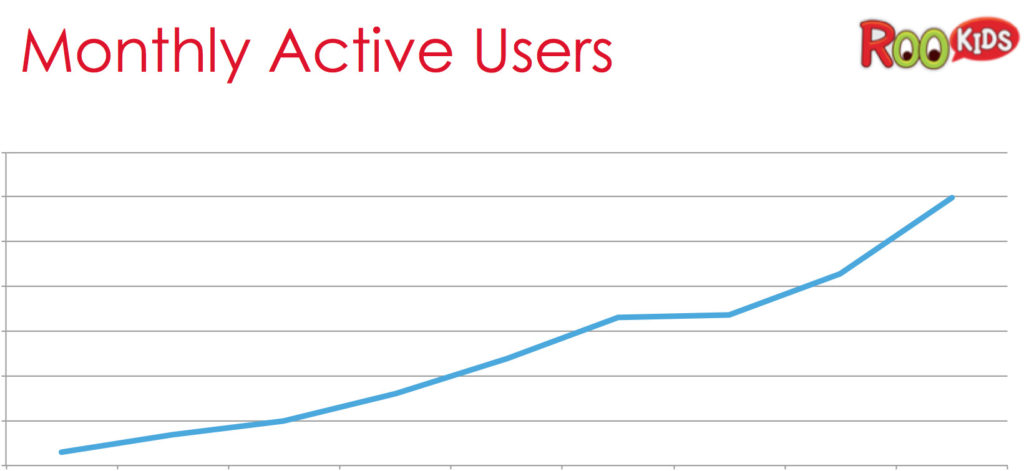
MAU is a stat commonly used to measure active users on Social Networks and Messaging apps. The number of unique users who have used the app at least once a month.
These stats look very encouraging. The analysis was right and it was a good call to go all-in on Roo Kids.
Encouraged by user response, we are now expanding Roo Kids products to include some cool features and become default safe social for kids.
We are also fundraising and welcome all interest/queries from investors.
The next article will be a season finale of sorts where I will discuss lessons learnt that other startups (in general) and startups for kids (in particular) will hopefully find useful.
(cont..)


